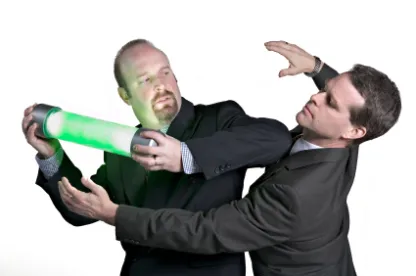Two recent orders from the District of Connecticut demonstrate that the element of surprise continues to be an effective, and sometimes necessary, factor in copyright litigation. The June 26, 2015 orders issued by the Honorable Vanessa L. Bryant, granted plaintiff Cisco Technology, Inc.’s ex parte applications for temporary restraining orders and enjoined the defendants – Certification Trendz Limited, Freetech Services Limited, and Simulators Limited – from (a) advertising, distributing, or selling Cisco Certification Exam materials, (b) transferring certain website domain names, and (c) transferring, removing, or disposing of any Cisco products.
At issue was the defendants’ alleged infringement of Cisco’s copyrights to various certification examinations used by Cisco to certify the competency of individuals who use its technology products and services. The court noted that in the ex parte applications for the restraining orders, Cisco asserted that the defendants, through multiple websites, “offer, sell, and distribute Cisco’s Certification Exam questions and answers as so-called ‘practice exams’ purportedly designed to prepare students to pass Cisco’s Certification Exams” and that the questions on these “’practice exams’ contain numerous exam questions and answers that are either identical or substantially similar to Cisco’s copyrighted exam questions and answers.”
In evaluating Cisco’s ex parte applications, the Court applied the same standard applicable to a preliminary injunction in the Second Circuit – namely that the movant must show “(1) irreparable harm in the absence of the injunction, and (2) either (a) likelihood of success on the merits or (b) sufficiently serious questions going to the merits to make them fair ground for litigation and a balance of hardships tipping decidedly in the movant’s favor.” The Court found that Cisco met this burden “[o]n the basis of the sum and substance of the sworn allegations of the Defendants’ piracy operations, their refusal to cease and desist, their false claims of compliance in response to repeated demands by Cisco, and their employment of ‘WHOIS Privacy Protection Services, Inc.’ to frustrate attempts at detection and avoid compliance with trademark and copyright laws.” Thus, in the separate decisions, Judge Bryant ordered that all Cisco products held by the defendants be impounded and that the defendants’ financial accounts be frozen.
These orders should serve as a reminder to copyright and trademark infringement plaintiffs with concerns that suing to protect their intellectual property rights will be frustrated by a defendant who moves assets and infringing goods upon notice of the suit that, upon a proper showing, a preemptive ex parte restraining order application may be fruitful.
The case is Cisco Technology, Inc. v. Certification Trendz Ltd., 3-15-cv-965 in the District of Connecticut. A copy of the Court’s orders is available here.



 />i
/>i

